|
Books Should Be Free Loyal Books Free Public Domain Audiobooks & eBook Downloads |
|
|
Books Should Be Free Loyal Books Free Public Domain Audiobooks & eBook Downloads |
|
Top Authors |
|---|
|
Book type:
Sort by:
|
By: George Eliot | |
|---|---|
 Romola
Romola
George Eliot's own favorite among her novels, this novel tells the story of Romola, the intelligent daughter of a blind scoller, who is falling in love with a man who is going to change her life and the politics of Florence in a way she doesn't like. Set in 15th century Florence, it is "a deep study of life in the city of Florence from an intellectual, artistic, religious, and social point of view". | |
 The Lifted Veil
The Lifted Veil
George Eliot’s 1859 novella, The Lifted Veil, departs radically from the grounded realism of her longer and better known works, such as Middlemarch and Daniel Deronda. Its tone calls to mind the works of middlebrow Sensationists, like Wilkie Collins (The Moonstone), and of some of the better known authors of Victorian era horror writings, such as Bram Stoker (Dracula) and Mary Shelley (Frankenstein.Eliot here explores mystical themes, considering the world of phenomena which are felt but not seen... | |
 Scenes of Clerical Life
Scenes of Clerical Life
Scenes of Clerical Life, which appeared in book form in 1858 (after serial publication in the previous year), was the first published fiction by George Eliot, the pen name for Mary Anne Evans. It consists of three novellas based on the lives of country clergymen and their communities. These characters interest Eliot not for their theology — she had abandoned conventional Christian belief — but for their humanity. In these stories, we find the earliest signs of the narrative voice, the humanism, and the realism that would make George Eliot one of the greatest novelists of the 1800s. (Introduction by Bruce Pirie) | |
 The Essays of "George Eliot"
The Essays of "George Eliot"
| |
 Brother Jacob
Brother Jacob
Brother Jacob is a short story by George Eliot, in which she explores the relationship between the selfish, self-centered and ambitious David Faux and his idiot brother, Jacob. | |
 How Lisa Loved the King
How Lisa Loved the King
| |
 Tom and Maggie Tulliver
Tom and Maggie Tulliver
| |
By: Charles Darwin (1809-1882) | |
|---|---|
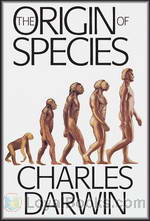 On the Origin of Species by Means of Natural Selection
On the Origin of Species by Means of Natural Selection
Considered to be one of the books that changed the world and how we view ourselves, On The Origin of Species by Charles Darwin was met with incredulous horror when it was first published in 1859. The revolutionary, almost blasphemous ideas it described were seen as antithetical to the existing ideas of Creation contained in the Bible and other religious texts. It was mocked, reviled and the author was personally subjected to vicious persecution by the establishment and theologians. In the years that followed its publication, the book became the subject of furious intellectual and social debate... | |
 The Voyage of the Beagle
The Voyage of the Beagle
The book, also known as Darwin’s Journal of Researches, is a vivid and exciting travel memoir as well as a detailed scientific field journal covering biology, geology, and anthropology that demonstrates Darwin’s keen powers of observation, written at a time when Western Europeans were still discovering and exploring much of the rest of the world. Although Darwin revisited some areas during the expedition, for clarity the chapters of the book are ordered by reference to places and locations rather than chronologically. With hindsight, ideas which Darwin would later develop into his theory of evolution by natural selection are hinted at in his notes and in the book . | |
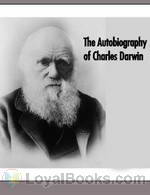 The Autobiography of Charles Darwin
The Autobiography of Charles Darwin
The Autobiography of Charles Darwin is the autobiography of the British naturalist Charles Darwin which was published in 1887, five years after his death. Darwin wrote the book, which he entitled Recollections of the Development of my Mind and Character, for his family. He states that he started writing it on about May 28, 1876 and had finished it by August 3. The book was edited by Charles Darwin’s son Francis Darwin, who removed several passages about Darwin’s critical views of God and Christianity... | |
 The Descent of Man and Selection in Relation to Sex
The Descent of Man and Selection in Relation to Sex
PART I. THE DESCENT OR ORIGIN OF MAN. Part 1 of 3 of book on evolutionary theory by English naturalist Charles Darwin, first published in 1871. It was Darwin's second great book on evolutionary theory, following his 1859 work, On The Origin of Species. In The Descent of Man, Darwin applies evolutionary theory to human evolution, and details his theory of sexual selection. The book discusses many related issues, including evolutionary psychology, evolutionary ethics, differences between human races, differences between sexes, the superiority of men to women, and the relevance of the evolutionary theory to society... | |
 More Letters of Charles Darwin
More Letters of Charles Darwin
| |
 The formation of vegetable mould through the action of worms, with observations on their habits
The formation of vegetable mould through the action of worms, with observations on their habits
| |
 The Foundations of the Origin of Species Two Essays written in 1842 and 1844
The Foundations of the Origin of Species Two Essays written in 1842 and 1844
| |
 Insectivorous Plants
Insectivorous Plants
| |
 Life and Letters of Charles Darwin
Life and Letters of Charles Darwin
| |
 Volcanic Islands
Volcanic Islands
| |
 Coral Reefs
Coral Reefs
| |
 The Different Forms of Flowers on Plants of the Same Species
The Different Forms of Flowers on Plants of the Same Species
| |
 A Monograph on the Sub-class Cirripedia With Figures of all the Species.
A Monograph on the Sub-class Cirripedia With Figures of all the Species.
| |
 Effects of Cross and Self Fertilisation in the Vegetable Kingdom
Effects of Cross and Self Fertilisation in the Vegetable Kingdom
| |
 The Variation of Animals and Plants under Domestication
The Variation of Animals and Plants under Domestication
| |
 Geological Observations on South America
Geological Observations on South America
| |
By: Joseph Smith Fletcher (1863-1935) | |
|---|---|
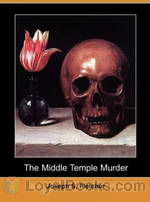 The Middle Temple Murder
The Middle Temple Murder
Midnight. A lonely courtyard. The dead body of a stranger—a prosperous looking, well dressed, elderly man is found in Middle Temple Lane, London. This is one of England's ancient Inns of Court where barristers were traditionally apprenticed and carried on their work. Middle Temple is just a few minutes walk away from busy Fleet Street and the Thames Embankment. In the dead man's pocket is a piece of paper with the name and address of a young barrister. One of the first people to reach the crime scene is the investigative reporter, Frank Spargo, who writes for a leading London newspaper, The Watchman... | |
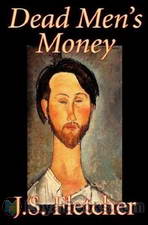 Dead Men's Money
Dead Men's Money
A naïve but sincere young lawyer's assistant who only dreams of marrying his childhood sweetheart and yearns to have a home and family with her. His sharp witted boss keeps the firm going by dint of shrewd business sense and legal talent. When the assistant accidentally stumbles into a murder case, the scene is set for events that change all their lives. Dead Men's Money by Joseph Smith Fletcher was published in 1920, the era considered to be the Golden Age of detective fiction. Writers like Agatha Christie, Ngaio Marsh, Dorothy L... | |
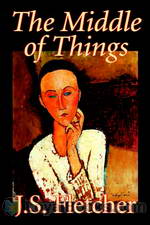 The Middle of Things
The Middle of Things
If you're in the mood for a cracking good classic murder mystery, The Middle of Things by JS Fletcher will certainly come up to expectations! Richard Viner is your average man on the street who stumbles upon a dead body in a dimly lit alley while taking his usual nightly stroll. When the police arrive, they conclude that this is a case of a robbery gone wrong, as the dead man's valuables are missing. However, as the case progresses, Viner discovers to his consternation, that the prime accused in the case is an old school-mate who is caught pawning items of jewelry belonging to the dead man... | |
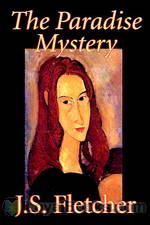 The Paradise Mystery
The Paradise Mystery
A quiet cathedral town in England, full of gossips and people who are not quite who they seem to be, is the setting for this murder mystery. | |
 The Chestermarke Instinct
The Chestermarke Instinct
Bank manager John Hornbury is missing, as are securities and jewels from the bank’s vault. Gabriel Chestermarke and his nephew Joseph have unaccountably refused to call in the police to investigate the theft from their bank. When Betty Fosdyke shows up to visit her Uncle John, she finds it past belief that he would simply disappear – let alone that he would commit larceny. Unable to simply sit by and wait while a detective from Scotland Yard investigates, Betty elicits the help of the chief clerk at Chestermarke’s bank and launches into the middle of the mystery. | |
By: Marion Zimmer Bradley (1930-1999) | |
|---|---|
 The Colors of Space
The Colors of Space
In "The Colors of Space," Marion Zimmer Bradley tells the story of Bart Steele, a human being who is disguised as a member of an alien species in order to discover the secrets of their space travel. This book is a science fiction novel set in the future, a time when humans can already travel faster than the speed of light and can reach the remote corners of the universe with the help of another type of beings called the Lhari. In the book, the Lhari help the humans to travel faster than light and go to the far corners of different galaxies but are unwilling to give their secrets to them... | |
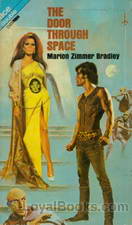 The Door Through Space
The Door Through Space
At one time Race Cargill had been the best Terran Intelligence agent on the complex and mysterious planet of Wolf. He had repeatedly imperiled his life amongst the half-human and non-human creatures of the sullen world. And he had repeatedly accomplished the fantastic missions until his name was emblazoned with glory. But that had all seemingly ended. For six long years he’d sat behind a boring desk inside the fenced-in Terran Headquarters, cut off there ever since he and a rival had scarred and ripped each other in blood-feud... | |
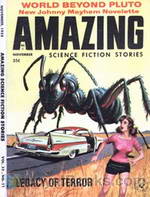 The Planet Savers
The Planet Savers
The Terran colony on the planet Darkover faces imminent destruction by a plague of the deadly Trailmen's Fever. The only hope is to develop a serum in time, but this requires the cooperation of the elusive native Trailmen, the brilliant parasitologist Dr. Jay Allison, and his split personality. (Introduction by Mark Nelson) | |
 Year of the Big Thaw
Year of the Big Thaw
| |